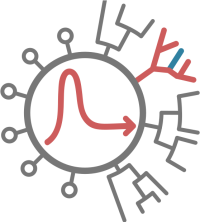The question we ask is whether online echo-chambers on social media networks enhance the anxiety and depression of individuals during the COVID19 outbreak. More specifically we want to measure the intensity of the communication about COVID-19 within the echo-chamber of individuals on Twitter and investigate the impact on their subsequent tweets in terms of the level of anxiety and signs of depressive language in their Tweets. We measure echo-chambers by the number of users in the social network that tweeted about COVID-19. We build on an extensive dataset of Twitter users for whom we have identified a large number of demographic and geographic variables (such as the gender, age, ethnicity, location by state, political affiliation) as well as their social network.


